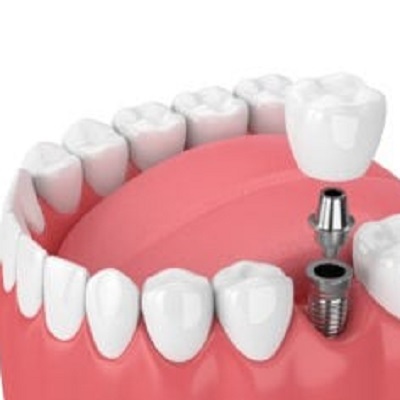Dental implants are a popular and effective solution for replacing missing teeth, offering a durable and aesthetically pleasing result. If you're considering Best Dental Implants Clinic in Dubai, understanding what they involve, their benefits, and the procedure can help you make an informed decision. Here's a comprehensive guide to dental implants.
What Are Dental Implants?
Dental implants are artificial tooth roots made from biocompatible materials like titanium. They are designed to provide a stable foundation for replacement teeth, which can be crowns, bridges, or dentures. The implant itself is a small, screw-like device that is surgically placed into the jawbone.
Benefits of Dental Implants:
Natural Look and Feel: Implants are designed to mimic the appearance and function of natural teeth. They blend seamlessly with your existing teeth and can improve your confidence and smile.
Durability: Implants are highly durable and, with proper care, can last a lifetime. They are resistant to decay and do not require the special maintenance that natural teeth need.
Bone Health: Implants help preserve jawbone density. When a tooth is lost, the surrounding bone can deteriorate. Implants stimulate the bone just like natural teeth, helping to prevent bone loss.
Functionality: Implants restore full chewing function, allowing you to eat your favorite foods without discomfort. They also improve speech compared to traditional dentures that can slip or click.
No Impact on Adjacent Teeth: Unlike bridges, which require modification of neighboring teeth, implants do not affect adjacent teeth. They stand alone and support replacement teeth directly.
The Dental Implant Procedure:
Initial Consultation: Your journey begins with a consultation where your dentist evaluates your oral health and discusses your options. This may involve X-rays or CT scans to assess bone density and structure.
Implant Placement: During the surgical procedure, the dentist places the implant into the jawbone. This is typically done under local anesthesia, and the procedure is relatively quick. After placement, a healing period is required to allow the implant to fuse with the bone, a process known as osseointegration.
Abutment Placement: Once the implant has integrated with the bone, a second minor surgery is performed to attach the abutment, a connector piece that will hold the crown or other restoration in place. The gum is then allowed to heal around the abutment.
Restoration: After the gum tissue has healed, a custom-made crown, bridge, or denture is attached to the abutment. This restoration is designed to match your natural teeth and provide a seamless appearance.
Aftercare and Maintenance:
Caring for dental implants is similar to caring for natural teeth. Regular brushing and flossing, along with routine dental check-ups, are essential to maintain the health of the implants and surrounding gums. It's also important to avoid habits that can damage your implants, such as smoking or chewing on hard objects.
Potential Risks and Complications:
While dental implants have a high success rate, there are potential risks and complications to be aware of:
Infection: As with any surgery, there is a risk of infection. Proper oral hygiene and following post-operative care instructions can help minimize this risk.
Implant Failure: In rare cases, the implant may fail to integrate with the bone or may become loose. This can be due to various factors, including insufficient bone density or underlying health conditions.
Nerve Damage: Although uncommon, there is a risk of nerve damage during the implant placement procedure. This risk is generally minimized with careful planning and execution by an experienced dentist.
Who Is a Good Candidate for Dental Implants?
Most people who are in good overall health and have sufficient bone density are candidates for dental implants. However, certain factors may affect candidacy, including:
Bone Density: Adequate bone density is crucial for implant stability. If bone density is insufficient, bone grafting may be necessary before implant placement.
Gum Health: Healthy gums are essential for implant success. Gum disease or other oral health issues must be treated before proceeding with implants.
Overall Health: Conditions like diabetes or certain medications may impact healing and implant success. It's important to discuss your health history with your dentist.
Cost of Dental Implants:
The cost of dental implants can vary based on several factors, including the number of implants needed, the type of restoration, and geographic location. While implants can be more expensive than other tooth replacement options initially, their durability and longevity can make them a cost-effective choice in the long run.
Conclusion:
Dental implants offer a reliable and aesthetically pleasing solution for replacing missing teeth, with benefits that extend beyond mere appearance. Understanding the procedure, benefits, and aftercare can help you make an informed decision and achieve a successful outcome. If you're considering dental implants, consult with a qualified dental professional to discuss your options and determine if implants are right for you.





Comments